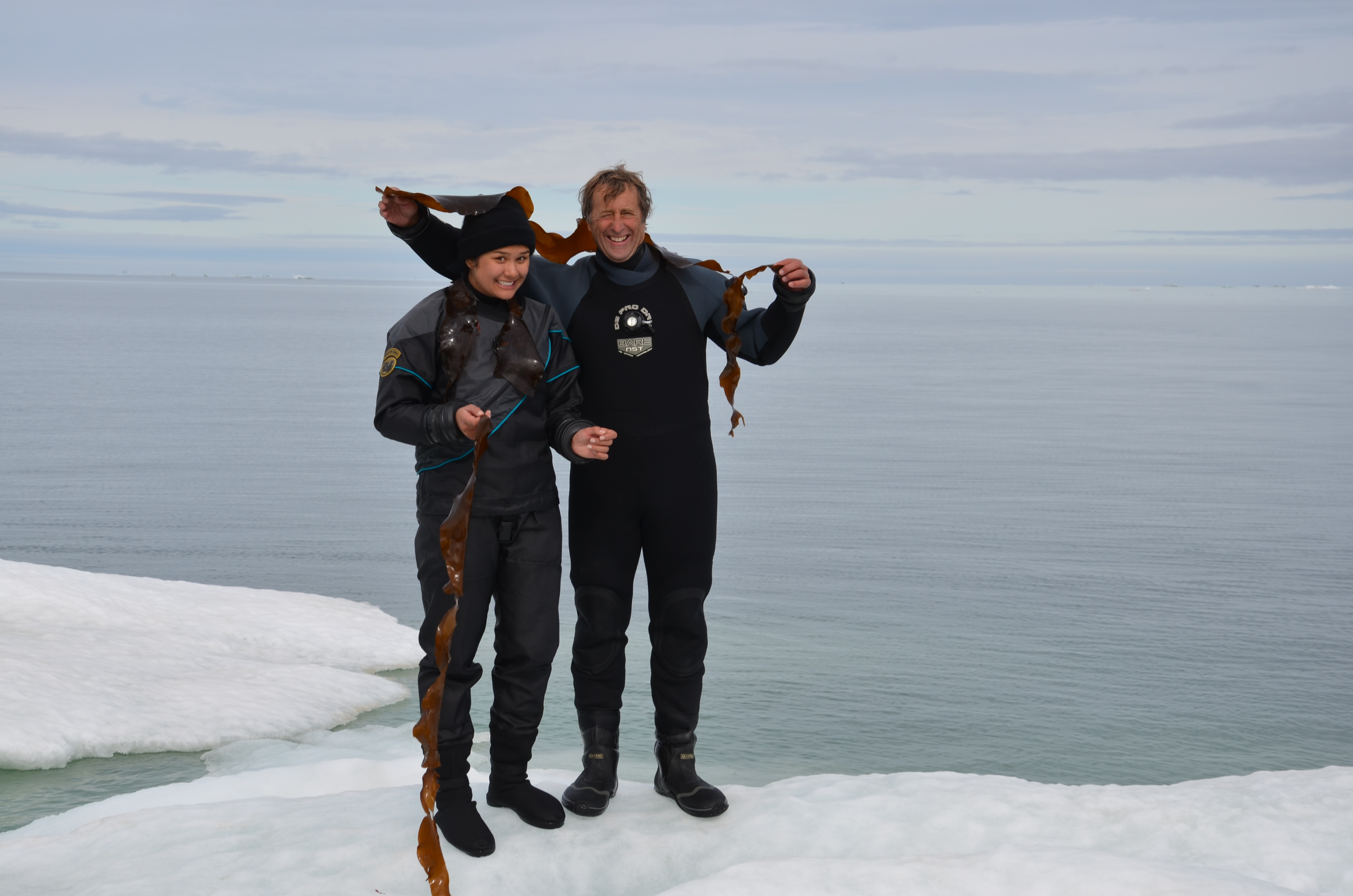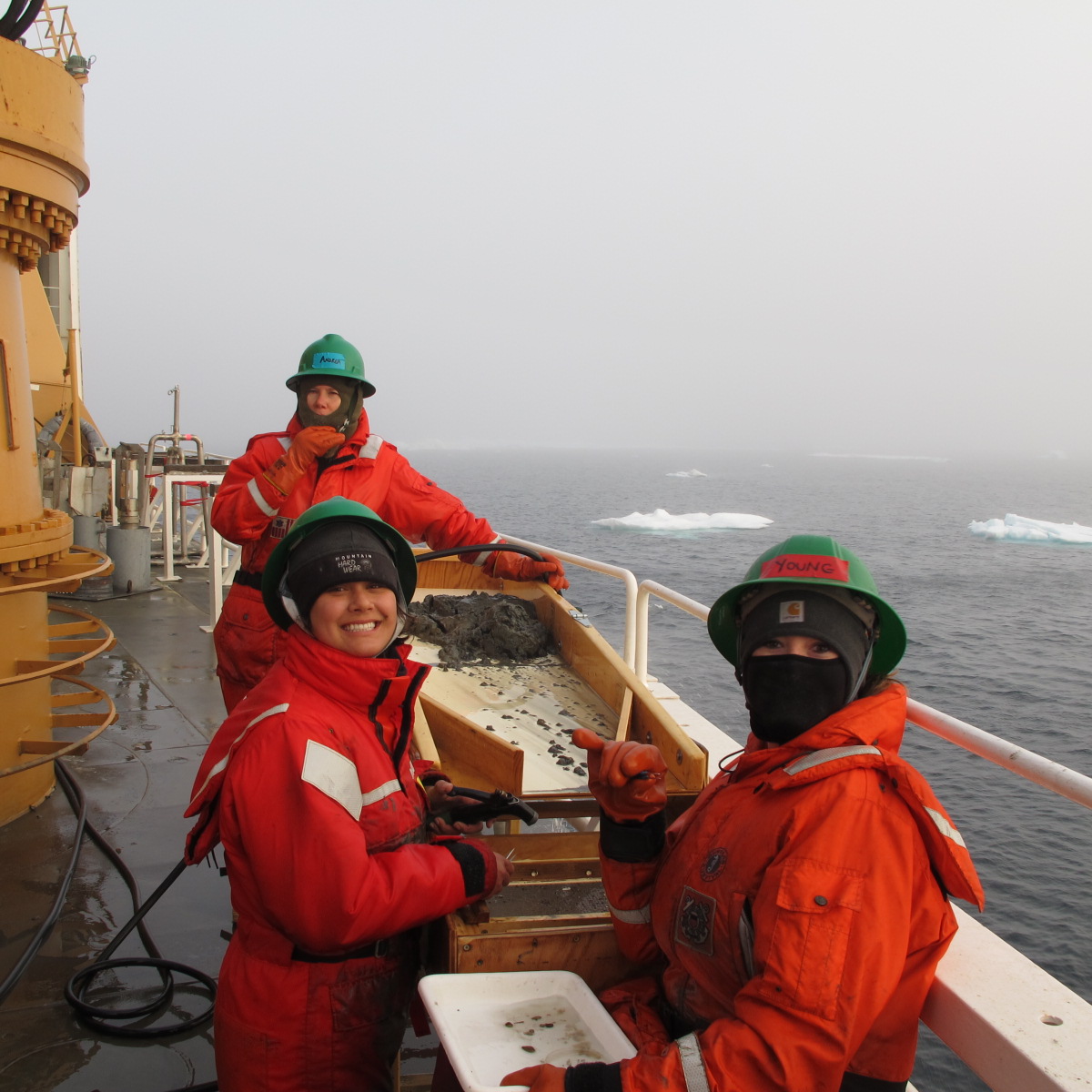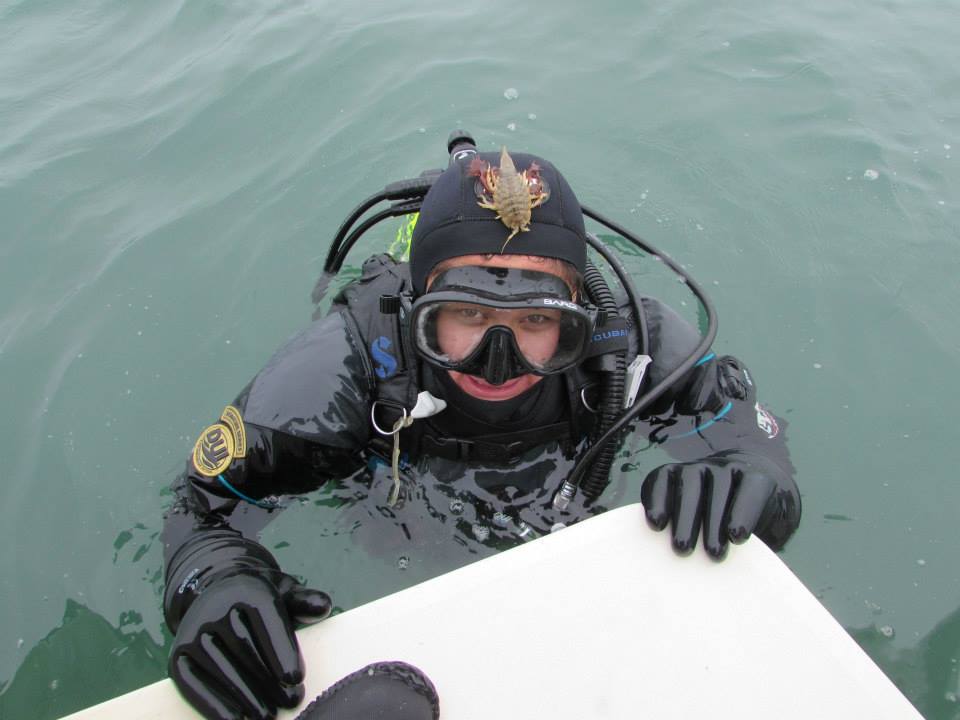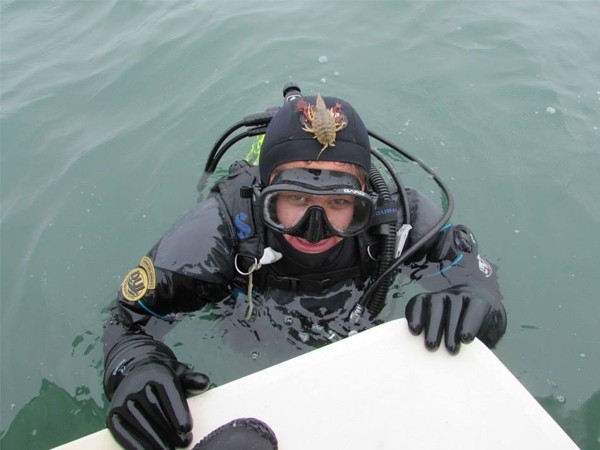Faculty Supervisor: Dr. Ken Dunton
Research Area: Ecology (phycology)
 Christina Bonsell and Dr. Ken Dunton model with their research subject the kelp Laminaria solidungula. Credit: Ted Dunton, UTMSI.
Christina Bonsell and Dr. Ken Dunton model with their research subject the kelp Laminaria solidungula. Credit: Ted Dunton, UTMSI.
Please tell us a little bit about your research project.
Kelp is an important foundation species whose presence allows for high productivity and diversity because they provide food and shelter for a wide range of animals and algae. My research is trying to determine how the kelp Laminaria solidungula grows and persists in the Arctic Ocean. I’m looking at how environmental factors, such as temperature and light, affect kelp distribution. My research is also trying to understand how kelp is transported during its microscopic stage as a spore. I would like to better understand the connectivity of different kelp patches and how those patches affect the overall persistence kelp populations. Do these patches allowing kelp to spread throughout the region or are the distances between the patches too great? Determining this and how small life stages of kelp are involved will help us better understand this species, which creates “biodiversity hotspots” in the Arctic Ocean.
How did you decide you wanted to pursue marine science?
My mom blames it on taking me to the zoo and beach too much when I was little. I always loved the ocean and when I was seven, we went to Monterrey Bay Aquarium and saw the giant kelp forest tank. I was in awe. I worked on a couple different research projects throughout my education, but in the back of my mind I always knew that wanted to work on kelp.

Arctic ecosystems are rapidly changing due to global climate change, which is altering how species grow and where they are distributed. My aim is to provide strong natural history information for this important Arctic kelp species. I also hope to increase awareness of general public of how Arctic ecosystems work. They can be really diverse and full of life even though it is freezing most of the year.
What is the most interesting or surprising thing you’ve gotten to do for your research project?
So here is my token polar bear story - One time at end of our field season, we were having a bonfire on the rocky beach. A teenager polar bear appeared about 50 meters away, which is scarily close. We had to run to the boat and drive away.
What’s been the greatest reward of doing research? The greatest challenge?
The greatest reward has been knowing that you are doing something new that no one has done before. For me, it is establishing knowledge about an Arctic ecosystem. One of the biggest challenges for me personally is communicating my science to a broader nonscientific audience, because I really care about these ecosystems, but sometimes I don’t have the words to make other people care.
What inspires you?
I would say the early naturalist like George Steller and Alfred Wallace. They simply wrote down their observations of new environments and created this mass of ecological knowledge that so much science has been based on.
Why did you choose UTMSI?
Truthfully, I Googled “kelp ecology lab” and Ken Dunton’s name came up. I always wanted to work on kelp and it was a great opportunity to work on kelp in a unique ecosystem.
What has been your most memorable moment at UTMSI?
I’m culturing kelp (Laminaria solidungula) to do experiments with its reproduction. This species releases spores in winter and stays in microscopic stages until there is an increase in light over summer. All of our work done in the Arctic is during the summer and I didn’t know what was going to happen to my kelp while I was gone. But, when I came back from the Arctic this summer I found that my tanks were coated in baby kelp and it was really great to see.
If you were a marine organisms what would you be and why?
I would be a sea otter because I get to play in kelp all day and I’d have lots of friends. I would be warm, fuzzy, and being a federally protected species wouldn’t be so bad either.  Christina Bonsell graduated from The University of California San Diego in 2012 with a bachelor of science in ecology, behavior and evolution. She hails from Goleta near San Barbara, California and is pursuing a Ph.D. degree in marine science. Credit: Meghann Bruce, U. of New Brunswick.
Christina Bonsell graduated from The University of California San Diego in 2012 with a bachelor of science in ecology, behavior and evolution. She hails from Goleta near San Barbara, California and is pursuing a Ph.D. degree in marine science. Credit: Meghann Bruce, U. of New Brunswick.









